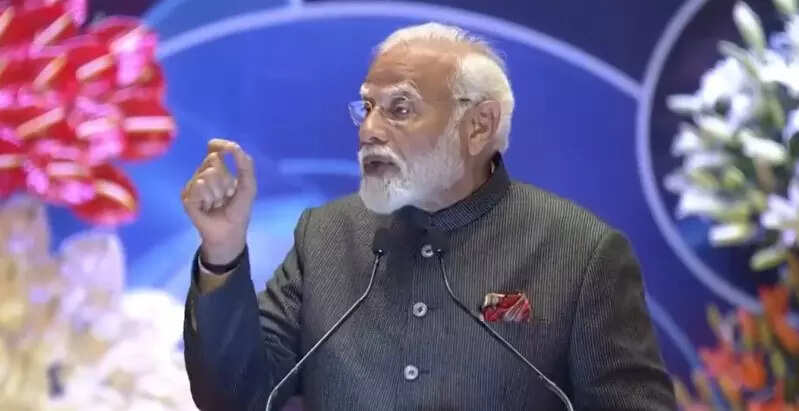
New Delhi: India’s “neo middle class” of 250 million people will help fuel the country’s growth, including in the mobility sector, Prime Minister Narendra Modi said at the inaugural Bharat Mobility Show on Friday. Automobile and auto component makers have a big role to play in realising their needs as well as fulfilling the country’s aspiration to become a global powerhouse, he said.
India will become the third-largest economy in the world during his third term, the Prime Minister reiterated, adding that there are immense opportunities for stakeholders to expand business.
“India is on the move and is moving fast,” the Prime Minister said. It’s the beginning of a golden period for the mobility sector, he said.
In the last 10 years, 250 million people have moved out of poverty, he said. “And of their dreams, one is related to your sector (to buy a vehi cle). There is a neo middle class in India. They have their own aspirations and they will take the Indian mobility sector to new heights,” Modi said, pointing out that the number of cars sold in India has risen from 120 million to more than 210 million since 2014, while the number of elec tric cars sold in India rose from 2,000 per year 10 years ago to 120 million annually now. In the past decade, passenger vehicle sales have risen 60% while that of two-wheelers is up 70%. Car sales in January have broken records. “The mobility sector is witnessing an unprecedented at mosphere in the country and you must capitalise on it,” he said.
The government is drawing up policies keeping in mind the needs of the future, he said.
Referring to the interim budget presented on Thursday, Modi said that in 2014 India’s capital expenditure was less than INR 2 lakh crore. That has risen to more than INR 11 lakh crore. This has given rise to many opportunities for India’s mobility sector, he said.
Timely completion of projects, the PM National Gati Shakti Masterplan promoting integrated transport, the National Logistics Policy, the transformative impact of the goods and services tax (GST) in accelerating trade and abolishing check posts at state borders have helped the industry by making it easier to do business in the country, he said.
“India is now on the threshold of becoming a global economic powerhouse, with the auto and automotive component industry playing a significant role,” Modi stated.
The INR 25,000-crore production linked incentive (PLI) scheme for the auto and auto component sector, the INR 18,000-crore PLI for advanced chemistry cells (ACC), the INR 10,000-crore Faster Adoption and Manufacturing of Electric Vehicles initiative have all been designed to support growth.
He cited the allocation of INR 1 lakh crore for the innovation fund and the decision to expand tax exemptions for startups. “These decisions will create new opportunities in the mobility sector,” Modi said.
The Prime Minister urged auto industry stakeholders to explore research avenues that utilise the country’s resources. “Why not conduct research to manufacture batteries using raw materials available in India? The auto sector should also explore research in green hydrogen and ethanol,” he said.
The Prime Minister asked the tyre industry to reduce its dependence on imported rubber by working with farmers.

